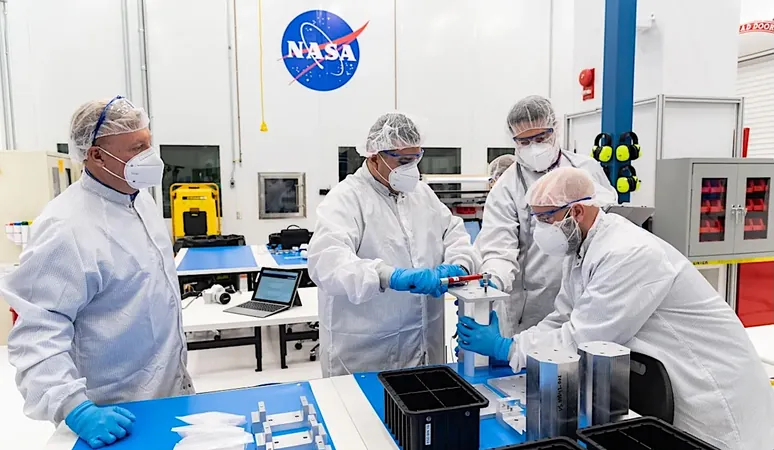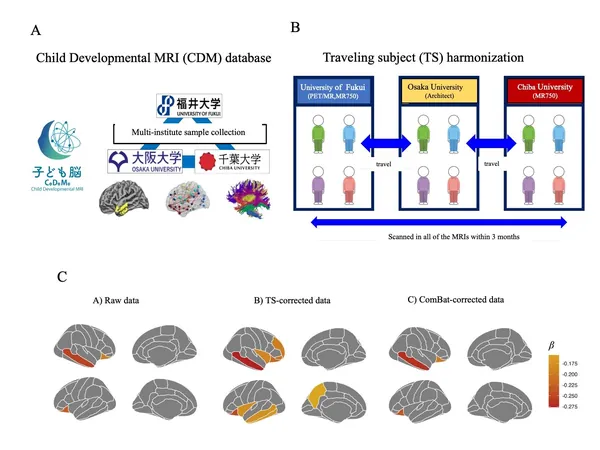
Trump's Vaccine Funding Cuts Could Leave U.S. Vulnerable in Future Pandemics, Experts Warn
2025-06-11
Author: Ming
The Trump administration's shocking decision to cancel nearly $766 million in contracts aimed at developing mRNA vaccines for potential pandemic flu viruses has raised alarms among former health security officials. They argue that this move weakens the nation's defense against biological threats, potentially leaving the U.S. reliant on other countries in a future crisis.
Beth Cameron, a senior adviser at the Brown University Pandemic Center and a former director at the White House National Security Council, stated, "This is a clear signal that we are retreating from our commitment to pandemic preparedness, which jeopardizes the safety of the American people." With pandemic flu outbreaks in the past claiming millions of lives globally, experts say this decision could have dire consequences.
The U.S. had been strengthening its pandemic defense mechanisms since the George W. Bush era, with strategies to quickly deploy vaccines during an outbreak. However, experts assert that the Trump administration's cuts to health agencies and research initiatives threaten to disrupt these critical processes.
Since Trump took office, reports indicate that the White House security council's staff has been halved, leaving the future of the Biomedical Advanced Research and Development Authority (BARDA) in question. Peter Marks, the nation’s top vaccine adviser, even resigned in March, citing an "unprecedented assault on scientific truth." This raises fears that the country may not be prepared when the next health emergency arises.
As health experts warn about the H5N1 bird flu — which has shown an ability to infect both cattle and humans — the need for mRNA technology becomes more urgent. The Biden administration had stepped in to fund Moderna for developing an H5N1 vaccine, but with Trump's fund cuts, that safety net now appears precarious.
Experts highlight the speed of mRNA vaccine development compared to traditional methods, which could take months and may risk supply shortages. The existing H5N1 vaccines rely on older, less reliable technologies, and the potential for a pandemic lurking in the U.S. raises the stakes.
Angela Rasmussen, a virologist at the University of Saskatchewan, emphasized, "Time is of the essence. We need vaccines ready to deploy the moment a threat emerges." However, recent staffing cuts at health agencies throw into doubt whether the U.S. can respond quickly and effectively.
Many experts fear that if a bird flu pandemic arises, the U.S. could find itself at the back of the line for necessary vaccines, similar to the struggles seen during the COVID-19 pandemic. Public health researcher Achal Prabhala warns, "The U.S. may face a situation akin to the vaccine shortages witnessed in India, where access was severely limited." Meanwhile, countries like Argentina are pushing ahead with mRNA vaccine development.
HHS spokesperson Andrew Nixon defended the funding cuts, arguing that continued investment in mRNA vaccines was "not scientifically or ethically justifiable," though this claim lacks substantial evidence. Research indicates that mRNA vaccines are overwhelmingly safe compared to the risks posed by viruses.
With the risk of politicized mistrust in vaccines on the rise, experts fear that if the bird flu were to turn into a pandemic soon, the consequences could be catastrophic. As Cameron succinctly put it, "Time lost means lives lost."




 Brasil (PT)
Brasil (PT)
 Canada (EN)
Canada (EN)
 Chile (ES)
Chile (ES)
 Česko (CS)
Česko (CS)
 대한민국 (KO)
대한민국 (KO)
 España (ES)
España (ES)
 France (FR)
France (FR)
 Hong Kong (EN)
Hong Kong (EN)
 Italia (IT)
Italia (IT)
 日本 (JA)
日本 (JA)
 Magyarország (HU)
Magyarország (HU)
 Norge (NO)
Norge (NO)
 Polska (PL)
Polska (PL)
 Schweiz (DE)
Schweiz (DE)
 Singapore (EN)
Singapore (EN)
 Sverige (SV)
Sverige (SV)
 Suomi (FI)
Suomi (FI)
 Türkiye (TR)
Türkiye (TR)
 الإمارات العربية المتحدة (AR)
الإمارات العربية المتحدة (AR)